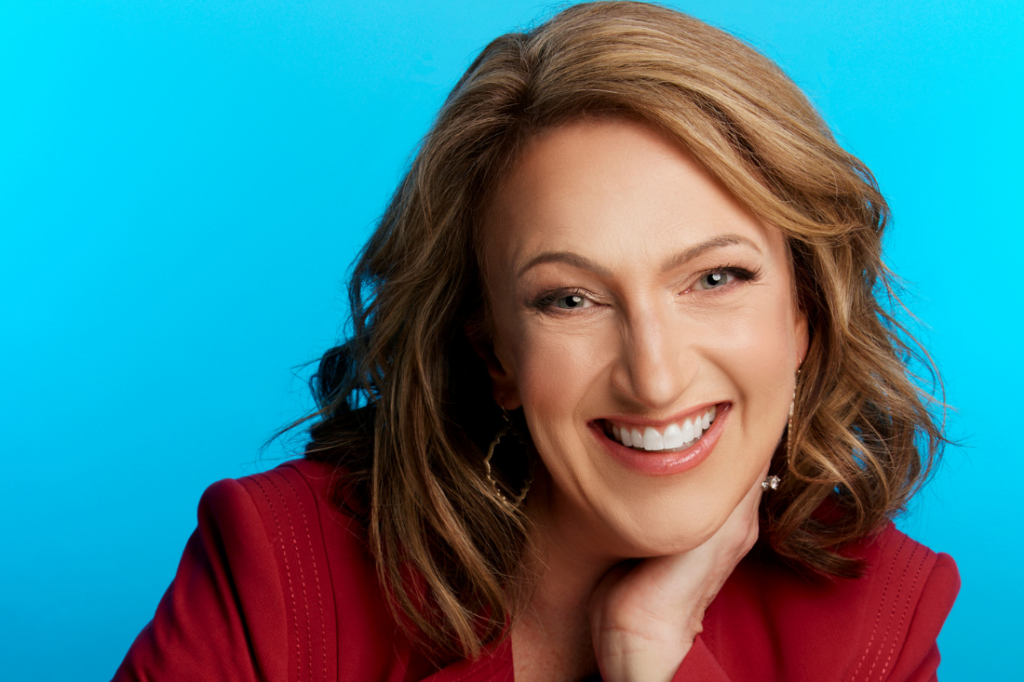Anne Grady’s journey toward resilience started with her son, Evan, who is now 19 years old. She knew something wasn’t right even before he was born. After his delivery, the nurse said she had never met a baby that angry—not what a first-time parent wants to hear. Evan cried constantly, and when he was 11 months old, Grady enrolled him in therapy; when he was 18 months old, his father, Grady’s husband, left.
Suddenly, Grady was a single mom with a baby who cried 20 hours a day, and nobody could tell her what was wrong. When Evan was 3, he tried to kill her with a pair of scissors. By the time he was 4, he was on his first antipsychotic, and, by 7, he was in his first psychiatric hospitalization.
Spurred by her son’s growing medical needs, Grady started studying the brain and neurodevelopment. Now, she teaches Fortune 500 companies, government agencies, associations and nonprofits that resilience is a skill that can be learned and honed—a skill she’s mastered firsthand.
After Evan’s second hospitalization, Grady was diagnosed with a tumor in her salivary gland that resulted in facial paralysis; a few days after surgery to remove the tumor, a speck of dust scratched her cornea. Then, while waiting for eye surgery, she fell down a flight of stairs, breaking her foot in four places.
“So, I had facial paralysis and the boot and a mentally ill, autistic child—and life and everything that goes with it,” says Grady, now a two-time TEDx speaker. SUCCESS contributor Breya Rodgers talked with Grady about how she overcame it all—and how others can, too.
This interview has been edited for length and clarity.
You’re a resilience expert. What does that mean?
It means that I have been dragged through it, and I have emerged on the other side, just like everybody else…. I was not by any stretch a resilience expert, but I got asked to do a TED Talk on resilience. And I thought, Well, I need to pour into the literature and really try to understand it. I was already super interested in the brain and the way we work because of Evan…. I was surprised to learn that resilience is not this magical genetic trait like skinny thighs. It’s not something you have or don’t—it’s very much a set of skills and muscles that you can cultivate and build. And whether we like it or not, life gives us plenty of chances to practice. So, I have been studying the brain and resilience and what organizations and leaders and entrepreneurs can do to not just navigate this world that we find ourselves in now but really thrive as a result.
Can you share a story of a time when you’ve helped someone build resilience?
I just spoke to Uvalde [Consolidated Independent School District in Texas]. In May [2022], they lost 21 of their students and teachers [at Robb Elementary]. And it was a really emotionally charged event. I wasn’t even sure if I was going to accept the [speaking] engagement, because I thought, What could I possibly say that could make this better? And a motivational rah-rah speech just didn’t seem to cut it. But what I shared with them—and I then got an outpouring of support and emails all weekend long; I received an email from a bus driver who was there the morning of and who ended up transporting kids to the ER in a bus—is, a lot of times, we’re so uncomfortable with difficult emotions that we try to run from them. We try to numb them. So grief, trauma, anxiety, fear, discomfort—we try to numb it.
The problem is, when you try not to feel stressed, you feel more stressed; when you try not to feel anxious, you feel more anxious; and when you try not to feel negative emotions, you’re actually magnifying the intensity and duration with which you feel them.
So, the advice that I gave them and the advice that I give lots of organizations, leaders, C-suite executives, CEOs, entrepreneurs, realtors, engineers, doctors, is sometimes you have to let yourself sit in the suck. Sometimes, it’s OK to not be OK. And that doesn’t mean you need to marinate in it, but there’s nothing wrong with you if you don’t feel happy all the time…. We have these beautiful, wonderful moments in between the challenges of life. And if we can learn to extract those and magnify them and savor them and appreciate them, it builds our capacity to deal with the not-so-great ones.
Given everything you know about resiliency, what would that look like in an ideal workspace?
In an ideal world, the future of work would find a way to prioritize mental health and well-being as much as physical health—what gets measured, gets managed. We measure KPIs and strategic initiatives; we measure goals and objectives; we measure budget and revenue. We have to start measuring mental well-being…. It is going to have to be the new imperative. That means that mental health resources need to be available. It means that we have to cultivate a growth mindset…. [Leaders] are going to hire the most talented, smartest individuals with the best resume and the greatest experience, but none of those things are predictors of how well this person will perform in a world of uncertainty, ambiguity and change. The leaders who are really going to thrive in this new world of work are the ones who are going to hire for effort and willingness to learn and grow and fail and get better. As you have entrepreneurs that are starting new businesses and improving their side hustles, it’s about emotional intelligence, not IQ. Seventy percent of the time, somebody with an average IQ will outperform someone with an exceptionally high IQ. And if you’ve ever met someone who’s brilliant and has no social skills, you can attest to that.
This article originally appeared in the January/February 2023 Issue of SUCCESS magazine.



